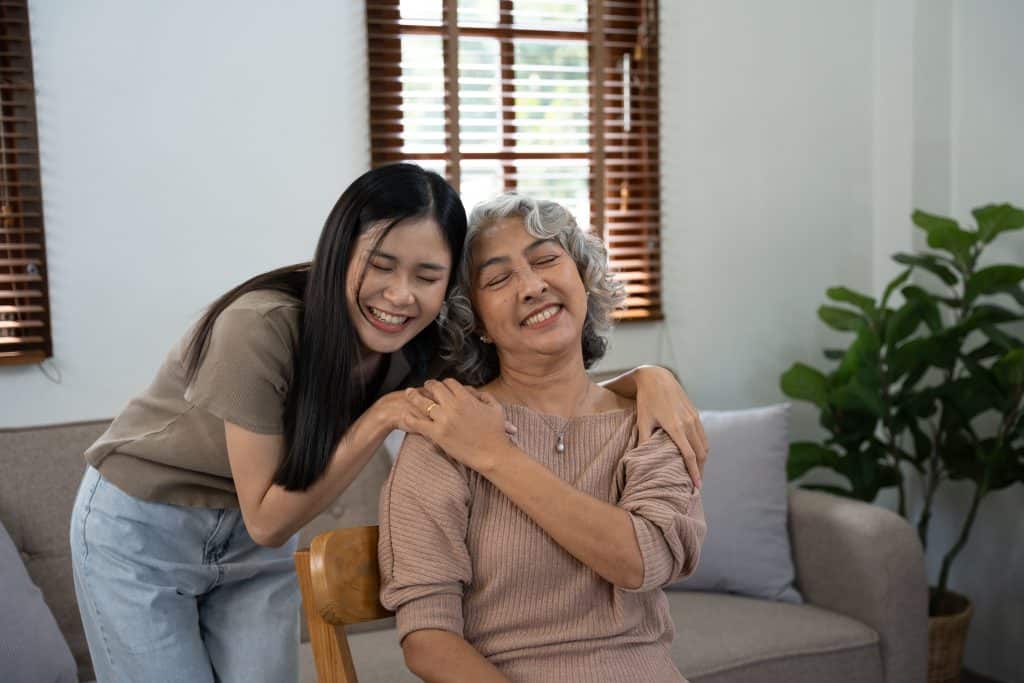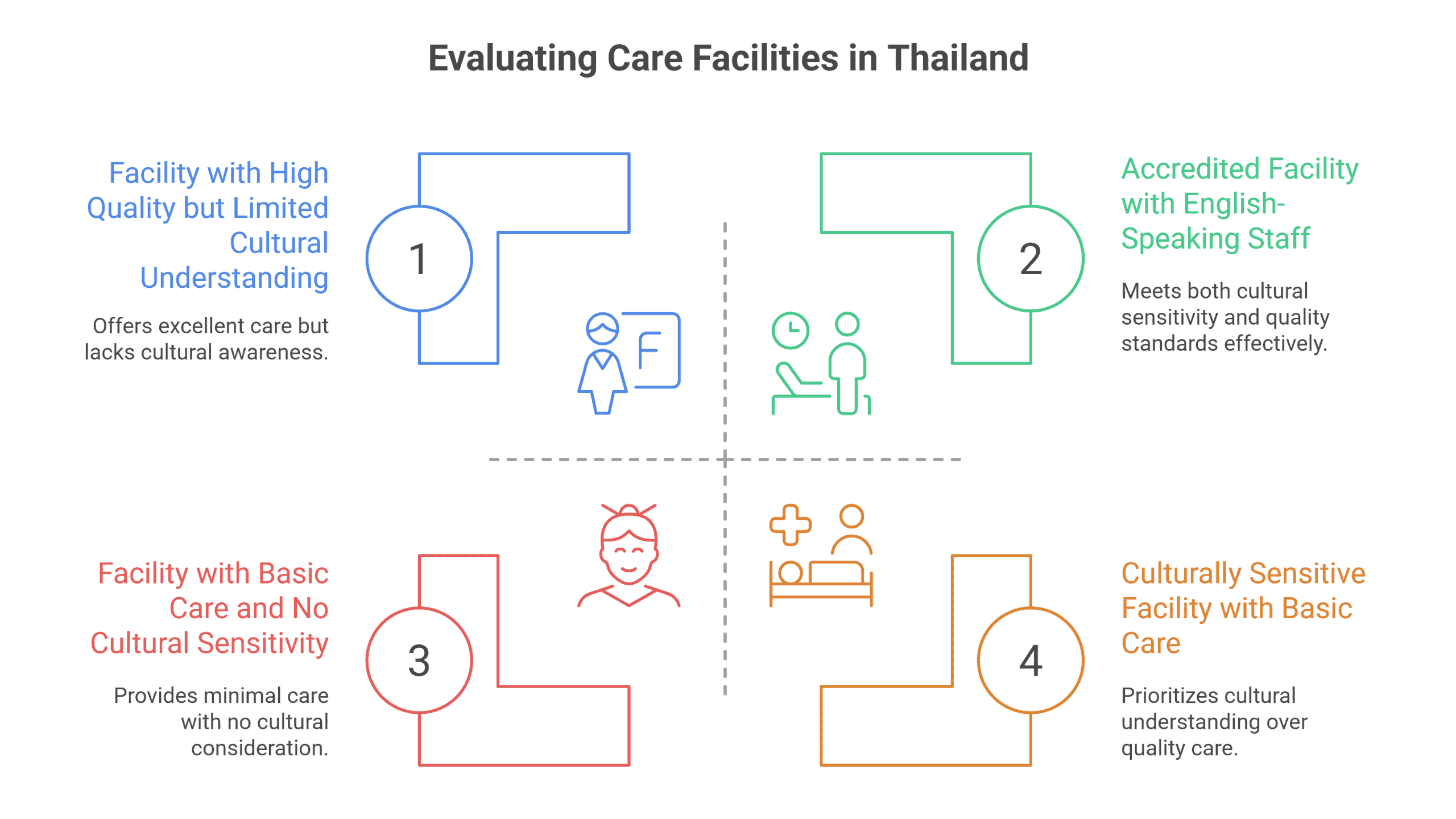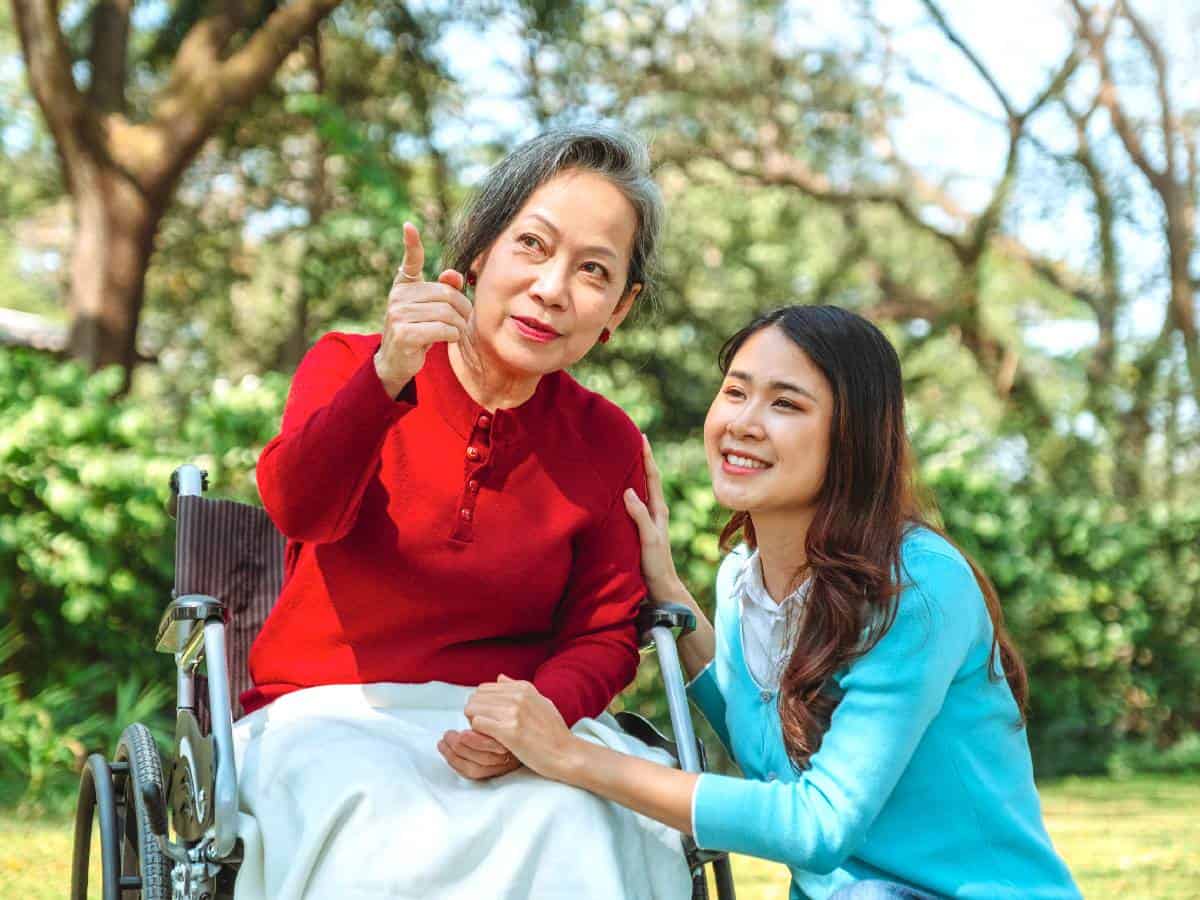Stop Struggling with Elderly Parent Care as a Thailand Expat
Living as an expat in Thailand while managing elderly parent care can feel overwhelming. Whether your parents are back home or considering joining you in the Land of Smiles, I’ve learned that having the right information makes all the difference. After years of helping expats navigate these complex decisions, I want to share practical insights that can help you provide the best possible care for your loved ones while maintaining your life in Thailand.
Key Takeaways
- Thailand offers comprehensive elder care options including nursing homes, care centers, and personalized care plans tailored for expat families
- Navigating visa requirements, cultural considerations, and quality care standards requires careful planning and local expertise
- Cost-effective care solutions in Bangkok, Chiang Mai, and Hua Hin provide world-class medical services with English-speaking staff
Understanding Elderly Parent Care Options as an Expat in Thailand

Traditional Care Facilities
Thailand has developed a robust network of care facilities that cater specifically to the expat community. Nursing homes in Thailand have evolved significantly, offering standards that rival western countries while maintaining the warmth of Thai hospitality. In Bangkok, Chiang Mai, and Hua Hin, you’ll find facilities that provide comprehensive care with English and Thai speaking staff.
The quality of care in these facilities often exceeds what many foreigners expect. Modern care centers offer personalized care plans, on-site medical services, and specialized programs for conditions like dementia care and memory care. What impressed me most during facility visits was the emphasis on maintaining residents’ quality of life while providing necessary medical care.
Assisted Living and Independent Options
For seniors who don’t require full-time care, Thailand offers excellent assisted living options. These care resorts, particularly popular in areas like Pattaya and Hua Hin, provide the perfect balance of independence and support. Residents enjoy private or semi-private rooms, assistance with daily living when needed, and access to comprehensive medical care.
The level of care can be adjusted as needs change, making these facilities ideal for expats planning their final years in Thailand. Many offer luxury retirement amenities while maintaining cost-effective pricing compared to similar facilities in western countries.
Home Care Services
Many expat families prefer home care options, especially when parents want to remain in familiar surroundings. Thailand’s home care services have expanded to meet this demand, offering everything from basic companionship to full nursing assistance. Professional caregivers can provide personalized care in the comfort of your parent’s own home, whether that’s in Thailand or back in their home country.
Navigating Visa and Legal Requirements
Retirement Visa Considerations
If you’re considering bringing elderly parents to Thailand, understanding visa requirements is crucial. The retirement visa offers a pathway for seniors, though financial requirements must be met. For elderly parents requiring care, exploring long stay options or dependent visas might be more appropriate.
The visa process can be complex, especially when medical needs are involved. I recommend consulting with immigration experts who understand the specific requirements for elderly care situations. Thailand offers various visa categories that might apply to your family’s unique circumstances.
Healthcare and Insurance
Thailand is known for its excellent healthcare system, but navigating insurance coverage for elderly care requires careful planning. Many international insurance plans don’t cover long-term care, making it essential to understand what care options are available and how they’re funded.
Private healthcare in Thailand offers world-class medical services, often at a fraction of the cost compared to western countries. However, comprehensive care plans should account for both routine medical care and potential emergency situations.
Regional Care Options Across Thailand
Bangkok Elder Care
The capital offers the most comprehensive elder care infrastructure in Thailand. Bangkok’s nursing homes and care centers provide access to specialized medical care, international hospitals, and a large expat community for social support. The city’s healthcare professionals are often trained internationally, ensuring high standards of care.
However, Bangkok’s urban environment might not suit all seniors. Traffic, pollution, and the bustling city life can be challenging for elderly residents who prefer quieter surroundings.
Chiang Mai Senior Living
Chiang Mai has become increasingly popular for expat retirees and their families. The city offers quality care facilities in a more relaxed environment, with cooler weather and lower costs of living. The expat community here is particularly supportive, creating networks that help families navigate elderly care decisions.
Care facilities in Chiang Mai often emphasize cultural sensitivity, helping foreign residents adjust to Thai customs while maintaining their own cultural preferences. The standard of care rivals Bangkok facilities while offering better value for money.
Hua Hin Coastal Care
For seniors who love coastal living, Hua Hin provides excellent care options with the added benefit of seaside tranquility. Many care resorts here cater specifically to the international community, offering resort-style amenities alongside professional medical care.
The town’s slower pace and beach environment can be therapeutic for elderly residents, particularly those dealing with dementia or other cognitive challenges. Hua Hin’s care centers often incorporate outdoor activities and nature-based therapies into their care practices.
Quality Standards and What to Look For

Evaluating Care Facilities
When researching care options in Thailand, I always recommend visiting facilities personally when possible. Look for accreditation from Thai healthcare authorities and international standards organizations. Quality care indicators include appropriate staff-to-resident ratios, clean and well-maintained facilities, and comprehensive care plans tailored to individual needs.
The best facilities offer compassionate care that respects both Thai cultural values and international expectations. Staff should be trained in caring for foreigners and understand the unique challenges expat families face.
Staff Training and Communication
Language barriers can significantly impact care quality. Facilities serving the expat community should have English-speaking staff available around the clock, not just during business hours. Medical staff should be able to communicate complex health information clearly to both residents and their families.
Cultural sensitivity training for Thai staff helps ensure that foreign residents feel comfortable and understood. The best care facilities invest in ongoing staff development to maintain high standards of care.
Financial Planning and Cost Considerations
Cost-Effective Care Solutions
One of Thailand’s biggest advantages for elderly care is cost-effectiveness. Quality care that might cost thousands of dollars monthly in western countries can often be obtained for a fraction of that price in Thailand. However, costs vary significantly based on location, level of care required, and facility amenities.
Budget carefully for both routine care and potential medical emergencies. While Thailand offers excellent value, unexpected medical needs can still be expensive, especially if specialized care or medical evacuation becomes necessary.
Planning for Long-Term Needs
Consider how care needs might evolve over time. A facility that works well for independent living might not be suitable if full-time nursing care becomes necessary. The best care plans account for changing needs and provide options for different levels of care within the same system.
Staying Connected Across Distance
Technology and Communication
Modern technology makes it easier than ever to stay connected with elderly parents, whether they’re in Thailand with you or receiving care elsewhere. Video calling, health monitoring apps, and digital communication tools help bridge geographical gaps.
Many care facilities now offer family communication platforms that provide regular updates on health status, activities, and general well-being. This transparency helps expat children feel more confident about their parents’ care.
Building Support Networks
The expat community in Thailand is generally very supportive when it comes to elderly care challenges. Online forums, social groups, and professional networks can provide valuable advice and emotional support during difficult decisions.
Don’t underestimate the value of connecting with other expat families who have faced similar situations. Their experiences and recommendations can be invaluable when evaluating care options.
Making the Decision: Thailand vs. Home Country Care
Pros and Cons Analysis
Deciding whether to arrange care in Thailand or in your parent’s home country involves weighing multiple factors. Thailand offers cost advantages, excellent medical care, and the opportunity for family proximity. However, language barriers, cultural differences, and distance from extended family can be significant challenges.
Consider your parent’s preferences, health needs, financial situation, and your own ability to provide oversight and support. There’s no universally right answer – the best choice depends on your family’s unique circumstances.
Transitional Care Options
Some families opt for transitional approaches, such as spending winter months in Thailand and summer months in their home country. This can provide the best of both worlds while allowing gradual adjustment to different care environments.

FAQs
Can my elderly parents get long-term visas for care in Thailand?
How much does quality elderly care cost in Thailand compared to Western countries?
Are Thai care facilities equipped to handle dementia and specialized medical needs?
What happens if my parent needs emergency medical care while in a Thai facility?
How can I evaluate the quality of care facilities from abroad?
Conclusion
Managing elderly parent care while living in Thailand as an expat requires careful planning, but it’s entirely achievable with the right approach. Thailand’s combination of quality care, affordability, and growing expat infrastructure makes it an increasingly viable option for families facing these decisions.
The key is thorough research, honest family discussions, and professional guidance when needed. If you’re weighing these important decisions, consider scheduling a consultation with Better Living Asia. Better Living Asia understands the unique challenges expat families face and can provide personalized guidance based on your specific situation and needs.






